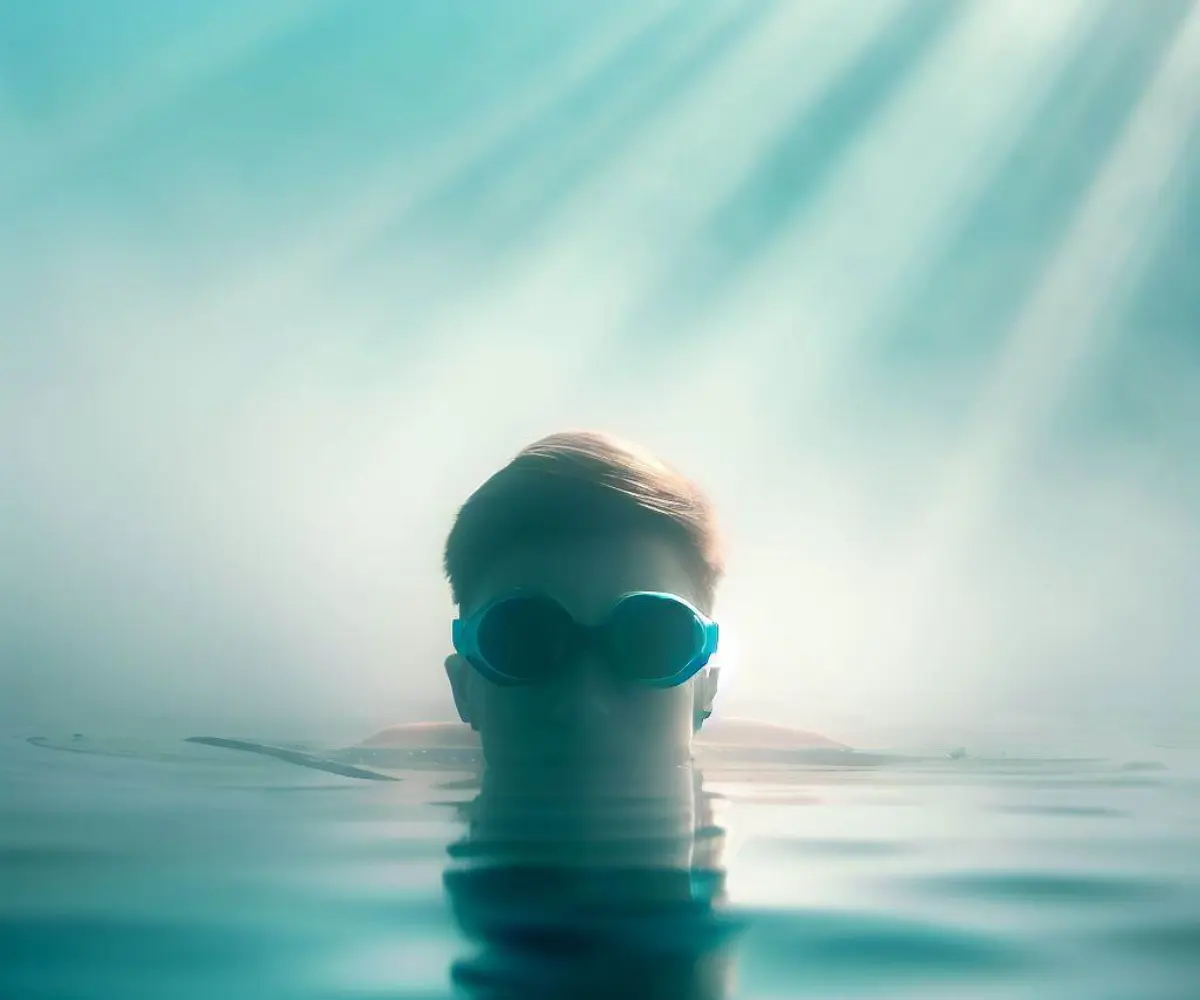Whether you are a professional swimmer or a recreational one, we all know the irritation that comes when swimming goggles fog up. The fogging up of goggles not only hampers visibility but can also disrupt a good swim. Thankfully, this common problem has a solution. This comprehensive guide will show you how to stop swimming goggles from fogging up, enhancing your swimming experience.
Why Your Swimming Goggles Fog Up?
Topics Covered In This Article
- 1 Why Your Swimming Goggles Fog Up?
- 2 How to Stop Swimming Goggles From Fogging Up: Step-by-Step Guide
- 3 Troubleshooting: Tips and Tricks
- 4 Frequently Asked Questions
- 4.1 Can I use dish soap to stop my swimming goggles from fogging up?
- 4.2 Why do anti-fog goggles still fog up?
- 4.3 How often should I replace my swimming goggles?
- 4.4 Can I use saliva to defog my goggles?
- 4.5 How can I protect the anti-fog coating on my goggles?
- 4.6 Why do swimming goggles fog up?
- 4.7 Can I prevent fogging in non-treated goggles?
- 4.8 Is saliva an effective anti-fog solution?
- 4.9 How should I care for my swimming goggles?
- 4.10 What should I do if my goggles fog up mid-swim?
- 5 Conclusion
Before we dive into the solutions, it’s crucial to understand why your swimming goggles fog up. Fogging occurs due to the temperature and humidity difference between the inside and outside of the goggles. When the warm face heats up the cooler air inside the goggles, the moisture in the air condenses, creating a layer of small water droplets – fog.
How to Stop Swimming Goggles From Fogging Up: Step-by-Step Guide
1. Pre-Treated Goggles
One way to avoid fogging is to purchase pre-treated goggles. These goggles have an anti-fog coating applied by the manufacturer, which minimizes the chance of fogging.
2. DIY Methods: Baby Shampoo or Toothpaste
If you have non-treated goggles, don’t fret! You can create your own defogging solution with products easily found at home. Lightly rub baby shampoo or toothpaste on the inside of your goggles, rinse it off, and let it dry.
3. Saliva: A Surprising Solution
Yes, it might sound odd, but saliva works as an excellent temporary solution. Spit on the inside of your goggles, rub it around, and rinse. However, this is a short-term solution and needs to be repeated regularly.
4. Commercial Anti-Fog Sprays
For a more professional approach, consider investing in commercial anti-fog sprays. They’re specially designed to prevent fogging in swimming goggles and are highly effective.
5. Proper Care and Maintenance
Ensure that you rinse your goggles with fresh water after each swim, allow them to air-dry, and store them in a protective case. This routine helps prolong the life and efficiency of your goggles.
Troubleshooting: Tips and Tricks
Despite your best efforts, sometimes the goggles might fog up. In such cases, here are some handy tips and tricks:
- Never touch the inside of your goggles as it can remove the anti-fog coating.
- If your goggles have become foggy mid-swim, take them off, rinse them in the pool water, and put them back on.
Frequently Asked Questions
Can I use dish soap to stop my swimming goggles from fogging up?
Yes, similar to baby shampoo or toothpaste, a small amount of dish soap can be rubbed on the inside of the lenses to create a thin layer that prevents fogging.
Why do anti-fog goggles still fog up?
Even anti-fog goggles can fog up if the anti-fog layer is damaged due to improper care like wiping the insides of the lens or exposing them to heat.
How often should I replace my swimming goggles?
Generally, swimming goggles should be replaced every 6-12 months, depending on how often they are used and how well they’re taken care of.
Can I use saliva to defog my goggles?
Yes, in a pinch, saliva can work as a natural anti-fog. Rub it on the inside of the lenses and rinse lightly before swimming.
How can I protect the anti-fog coating on my goggles?
Avoid touching or wiping the inside of the goggles and rinse them in fresh water after each use. Always let them air dry.
Why do swimming goggles fog up?
Goggles fog up due to the temperature difference between the inside and outside of the goggles.
Can I prevent fogging in non-treated goggles?
Yes, you can use home products like baby shampoo or toothpaste or purchase commercial anti-fog sprays.
Is saliva an effective anti-fog solution?
Yes, saliva can work as a temporary solution, but it needs to be repeated regularly.
How should I care for my swimming goggles?
Rinse them in fresh water after each use, allow them to air-dry, and store in a protective case.
What should I do if my goggles fog up mid-swim?
Take them off, rinse in pool water, and put them back on.
Conclusion
Learning how to stop swimming goggles from fogging up is key to an uninterrupted and enjoyable swimming session. From understanding why goggles fog up to exploring various preventative measures, we’ve uncovered the mystery behind clear and fog-free swimming. Whether you prefer the DIY approach with home products or choose the specialized commercial anti-fog sprays, the choice is yours. Remember, a little care goes a long way in maintaining the lifespan and effectiveness of your swimming goggles. So, the next time you dive into the water, let your vision be as clear as your swimming skills. Happy swimming!
Read Also:
Acknowledgements:
This article is based on research from various sources and provides advice and information about preventing swimming goggles from fogging up. The information provided is accurate to the best of our knowledge at the time of publication.

Robert Perry is a leading expert in the world of eyewear. His wealth of experience and unique insight in the realm of gaming glasses, swimming goggles, sunglasses, eyeglasses, and computer glasses has set him apart in the industry.
A keen observer of daily fashion styles and the utility of glasses in various lifestyles, Perry is passionate about empowering individuals with knowledge on eyewear selection. He is known for his thorough, clear, and relatable analysis, making it easier for readers to find the perfect glasses for their specific needs.
Perry’s writings consistently reflect his understanding of both function and fashion, affirming his position as an influential figure in the eyewear community.

